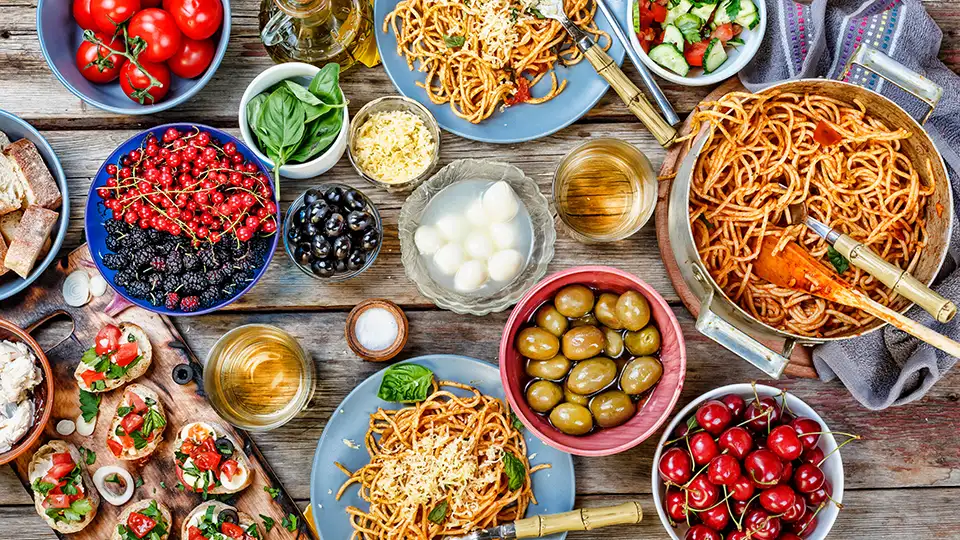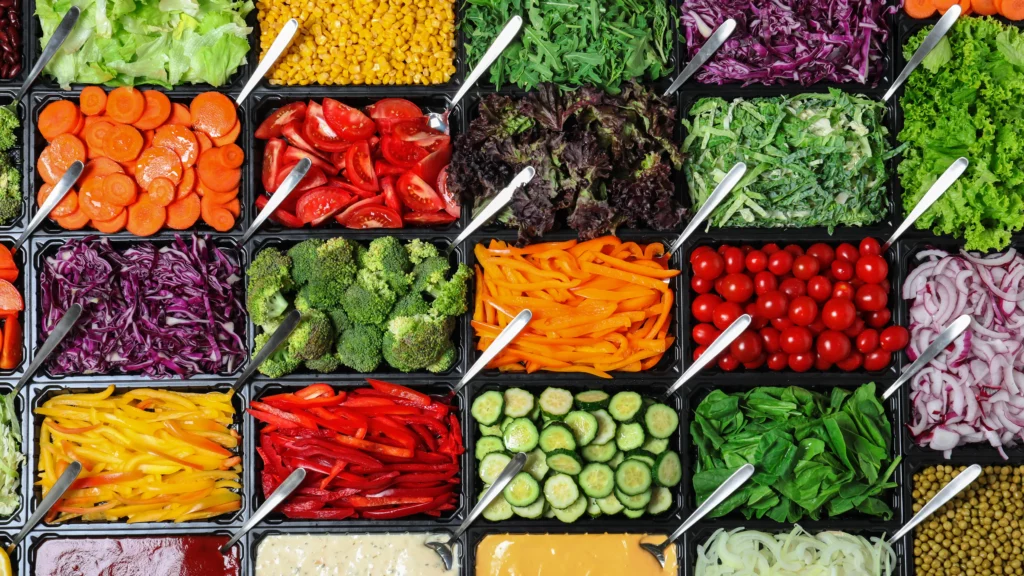The days of checking a box on an RSVP card for chicken or steak are long gone. As more and more people try to manage healthy lifestyles for their personal lives, dietary restrictions have become increasingly more common and more complex.
For event planners, this can create real challenges. After all, vegan is not the same as vegetarian, and carb-free is not the same as gluten-free or grain-free. Add in a wide variety of allergies and food sensitivities, and there are too many pitfalls and not enough options to satisfy everyone. Thankfully, VIBE can help with four easy strategies for handling dietary restrictions at your next event.
#1 – Plan Ahead
When you first send out invitations or registration for events, include a dietary response card as part of your confirmation materials. This allows guests to let you know ahead of time if they or a travel companion will require different accommodations. Remember to allow for food allergies like dairy, nuts, and shellfish, as well as religious considerations such as kosher or halal.
A digital form is excellent for this purpose as it is easy for guests and compiles all information in one place for event organizers.

#2 – Find a Flexible Cuisine
They say variety is the spice of life. This is especially true when it comes to picking a style of food for events. Specific cuisines, like Asian, Mediterranean, Indian, and Mexican, tend to be very diverse in their dishes. Many of these are more vegetable-forward than meat-and-starch American or pasta-leaning Italian dishes.
You can also look at an “international sampler” type of menu that caters to many different types of dietary lifestyles while adding a fun, festive element to an event. Fusion cuisine is another creative way to take the best of two or more worlds and create a new flavor direction that suits multiple diets.

#3 – A Salad Bar Never Goes Out of Style
Even those without strict dietary preferences or allergies enjoy a salad bar because of the freedom it allows them to create a plate that’s customized just to them. In addition to standard greens and toppings, don’t be afraid to add some unique offerings, especially if they’re local and in season. Fresh berries at the peak of ripeness, straight from the ocean seafood, and artisanal cheeses can all add an extra unique element to everyday salad.
Make sure to offer a large assortment of dressings and even some soups or stews for additional variety.
#4 – Be Transparent
The last thing anyone wants at an event is an unpleasant surprise. When it comes to diets, this could be an upset guest who didn’t have anything they could eat or someone having a serious or life-threatening reaction to an allergy.
Labeling everything with all ingredients is a way to avoid most problems. This includes providing notices of dishes that were prepared with “shared” equipment or facilities. For example, a guest with a severe peanut allergy will need to know if certain items may have come in contact with peanuts, as even the smallest amount can mean a trip to the hospital for some people. Likewise, those with religious dietary considerations cannot have vegetarian meals that have been in contact with meat or meat by-products, even if there is no meat in the dish. The more you let guests know about their food, the more they can make their best choices.
Food and beverage are a big part of many events, but it doesn’t have to be a make-or-break scenario. At VIBE, we have close to two decades of expertise working with audiences from all parts of the world with countless different dietary needs, and we have the same amount of expertise working with caterers and restaurants to ensure those needs are met. So if you need our help, we’re always happy to take your order.









